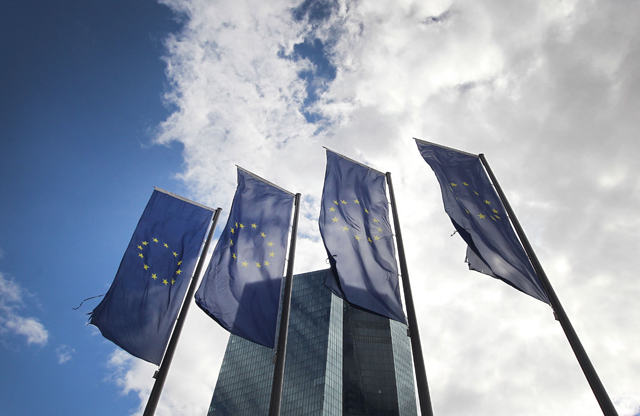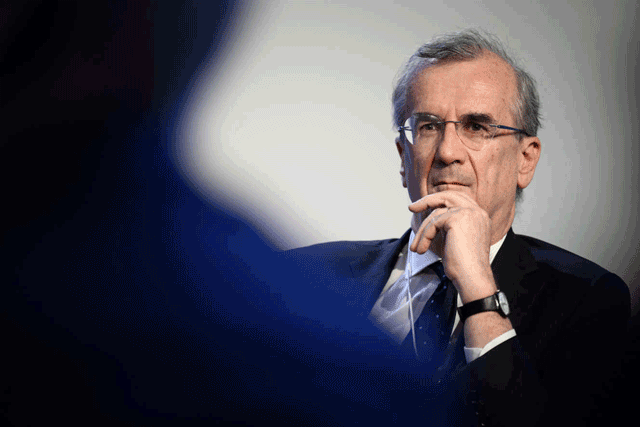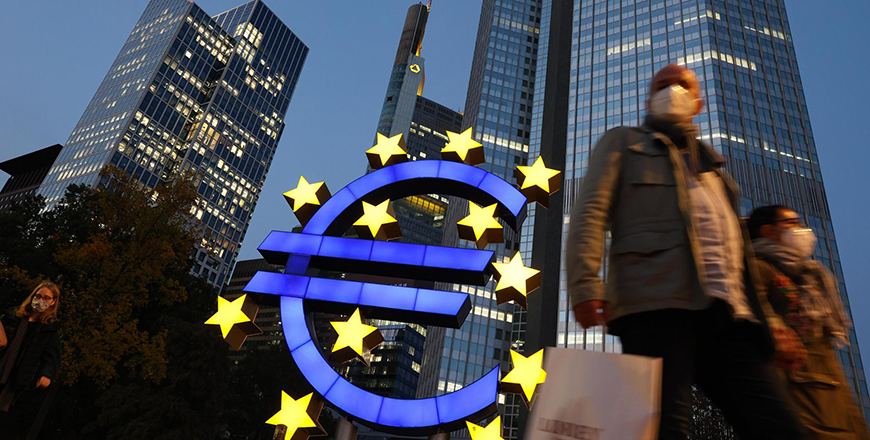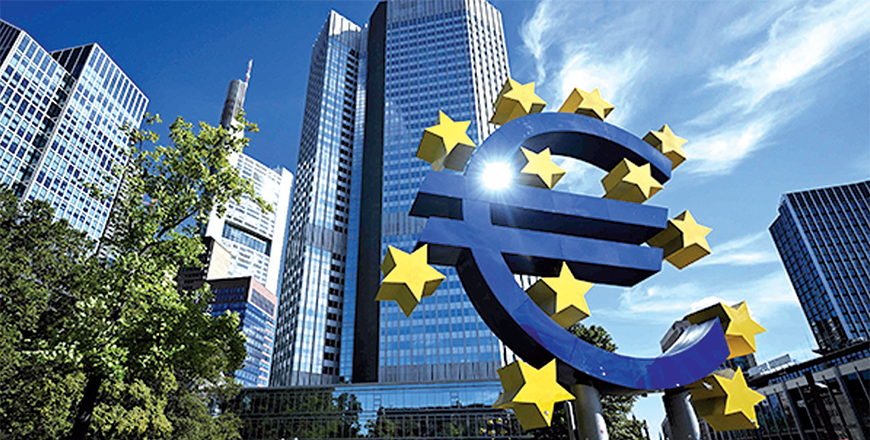You are here
ECB unleashes ‘historic’ rate hike to battle record inflation
By AFP - Sep 08,2022 - Last updated at Sep 08,2022

Flags of Europe flutter in front of the headquarters of the European Central Bank (ECB) prior to the news conference of the bank's governing council following their meeting in Frankfurt am Main, western Germany, on Thursday (AFP photo)
FRANKFURT — The European Central Bank (ECB) announced the largest rate hike in its history on Thursday, as runaway energy prices drove eurozone inflation to new heights.
Policymakers resolved to raise the ECB's key rates by 75 basis points, a leap matched only by a technical move made in 1999 shortly after the central bank's founding.
The "major step" quickened the ECB's move away from a "highly accommodative level of policy rates" to one that would bring inflation back to its two-per cent target, it said in a statement.
Eurozone inflation hit a record 9.1 per cent in August, as steep increases in the price of energy in the wake of the Russian invasion of Ukraine heaped pressure on households and businesses.
Consumer prices were likely to continue to rise at a very quick pace "for an extended period", the ECB predicted, with its latest forecasts expecting inflation to average 8.1 per cent for 2022.
"Given the level of inflation and the uncertainties about its evolution, for the ECB, there is less risk in doing more than in doing less," said Franck Dixmier, head of fixed income at Allianz Global Investors.
The ECB already exceeded expectations at its July meeting with a 50-basis-point increase in interest rates, its first hike in more than a decade.
Thursday's ‘drastic’ increase was not the end of the ECB's work, however, with the central bank saying it "expects to raise interest rates further" in its next meetings.
'Determination'
Ahead of the meeting, ECB board member Isabel Schnabel called on her colleagues to show "determination" to tame price rises.
Speaking at the annual Jackson Hole central banking symposium at the end of August, Schnabel urged the central bank to respond "more forcefully to the current bout of inflation, even at the risk of lower growth and higher unemployment".
The ECB is playing catch-up with central banks in the United States and Britain, which started raising rates harder and faster in response to inflation.
The 75-basis-point increase matches the largest step taken by the Federal Reserve in its current hiking cycle.
Meanwhile, a weak euro, which fell below $0.99 for the first time in 20 years this week, has bolstered the case for bigger interest rate hikes.
The gathering on Thursday also marked the beginning of a new "meeting-by-meeting" approach by the ECB. In July, policymakers scrapped so-called forward guidance, which had limited the ECB's room for manoeuvre, giving them a free hand for more aggressive hikes.
Recession rising
In an updated set of economic forecasts, the ECB said it expected inflation to fall back to 5.5 per cent in 2023 and 2.3 per cent in 2024.
The central bank also slashed its forecast for economic growth in 2023 to 0.9 per cent, from its previous prediction of 2.1 per cent.
Recent gloomy economic data meant the eurozone was "expected to stagnate later in the year and in the first quarter of 2023", the ECB said.
"Very high energy prices are reducing the purchasing power of people's incomes and, although supply bottlenecks are easing, they are still constraining economic activity," said the bank.
The war in Ukraine was also still weighing on the confidence of businesses and consumers, it added.
With energy prices still soaring unabated and winter approaching, EU economic affairs commissioner Paolo Gentiloni warned on Wednesday that the threat of a recession in Europe was "rising".
"We may well be heading into one of the most challenging winters in generations," he added.
Related Articles
PARIS — The European Central Bank (ECB) is "close to the peak" of its inflation-fighting interest rate increases, Bank of France governor Fr
FRANKFURT, Germany — Eurozone interest rate setters should proceed "gradually and cautiously" in loosening monetary policy as there are stil
FRANKFURT — With inflation dropping faster than expected and the economic outlook darkening, markets will be looking for clues about when eu


















